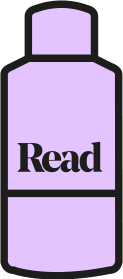•How To Stop Sneezing Through Summer•

The weather is finally starting to warm up as summer well and truly on the way. Unfortunately for some of us, the warmer weather brings streaming eyes and the sniffles as the pollen count rises; the dreaded hay fever. But what exactly is hay fever, and why does it affect some of us every summer?
Hay fever is an annoying allergic reaction caused by pollen or dust. Exposure to the antigen (pollen or dust) causes mast cells and basophiles (immune cells) to release histamine, which causes an inflammatory response in the body. This is why the mucous membranes of the eyes and nose become inflamed, causing runny noses and watery, itchy eyes – this is an immune response.
So, how can we manage this naturally?
Support Your Immune System
As we know this is an immune response, meaning that we need to work on building up the immune system by giving it the nutrients it needs – zinc, vitamin C, omega 3, vitamin D. Check out my last blog for a bit more information on how to boost these nutrients via diet. A couple of extra things I like to do to boost my immune system is to put a couple of spoons of baobab powder in my morning smoothie and also take an ultra mineral supplement, as it is quite difficult to get all the zinc we need via diet.
A strong immune system will help our bodies cope better with seasonal allergies.
Bee Pollen
Bee pollen is a complete food which is richer in proteins than any animal source and has many amazing benefits.
One of bee pollen’s benefits is that it is great for preventing allergies as it reduces the presence of histamine stopping that inflammatory reaction we see in hay fever. It is also great for boosting the immune system, digestive system, helping with other respiratory issues such as asthma, boosting energy and soothing skin inflammations such as psoriasis or eczema. You can incorporate it into your diet by popping a spoonful on top of your porridge in the morning or throwing it into a smoothie.
Quercetin
Quercetin is a flavonoid (plant pigment) that is commonly found in fruits and vegetables, especially onions, citrus, apples, berries, olive oil and green tea. Quercetin can also be taken in a supplement form and is has been shown to inhibit histamine release preventing the inflammatory response found in hay fever.
What is the difference between Quercetin and an antihistamine?
Antihistamines do not inhibit histamine production; they only inhibit histamine receptors – this means that histamine is still being released into the body but is stopped from creating the natural inflammatory reaction in the body.
Also, as a pharmaceutical it can have some nasty side effects such as drowsiness, dizziness, constipation, blurred vision, dry mouth/nose/throat – yuck.
Haymax
HayMax is a natural, organic allergen barrier balm (sometimes referred to as a nasal balm) that is applied to the rim of the nostrils. It can also be applied to the bones of the eyes. HayMax has been proven to reduce dust and pet allergens and more than a third of pollen from entering the body. Less allergen, less reaction. Great thing to keep in your handbag for when you start to get that itchy feeling in your nose!
Raw Honey
Local raw unprocessed honey is thought to help hay fever sufferers through a process called desensitization. Raw honey contains traces of pollen, however, this is the heavy-grained type of pollen which doesn’t trigger allergies in the human body. This desensitizes the body to local pollen, so that the pollen does not trigger allergic reactions in the patient come hay fever season.
Some people swear by this, others think it’s an old wives’ tale – I like honey and hate hay fever so I am always happy to have a couple of spoonfuls a day on the months leading up to hay fever season!
What are you tricks for beating hay fever this summer?
– Elsie Rutterford and Dominika Minarovic
•How To Stop Sneezing Through Summer •





 Back
Back